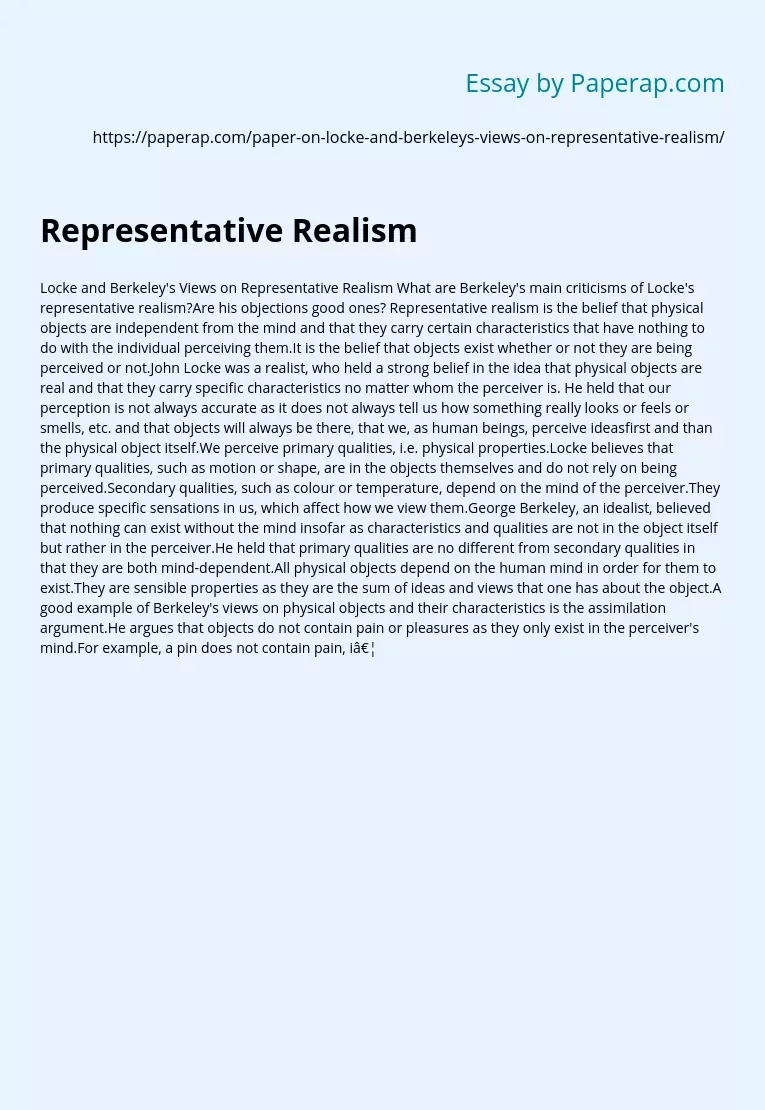Representative Realism
Locke and Berkeley’s Views on Representative Realism What are Berkeley’s main criticisms of Locke’s representative realism?Are his objections good ones? Representative realism is the belief that physical objects are independent from the mind and that they carry certain characteristics that have nothing to do with the individual perceiving them.It is the belief that objects exist whether or not they are being perceived or not.John Locke was a realist, who held a strong belief in the idea that physical objects are real and that they carry specific characteristics no matter whom the perceiver is.
He held that our perception is not always accurate as it does not always tell us how something really looks or feels or smells, etc. and that objects will always be there, that we, as human beings, perceive ideasfirst and than the physical object itself.We perceive primary qualities, i.e. physical properties.Locke believes that primary qualities, such as motion or shape, are in the objects themselves and do not rely on being perceived.
Secondary qualities, such as colour or temperature, depend on the mind of the perceiver.They produce specific sensations in us, which affect how we view them.George Berkeley, an idealist, believed that nothing can exist without the mind insofar as characteristics and qualities are not in the object itself but rather in the perceiver.He held that primary qualities are no different from secondary qualities in that they are both mind-dependent.All physical objects depend on the human mind in order for them to exist.
Representative Realism. (2019, Dec 05). Retrieved from https://paperap.com/paper-on-locke-and-berkeleys-views-on-representative-realism/

